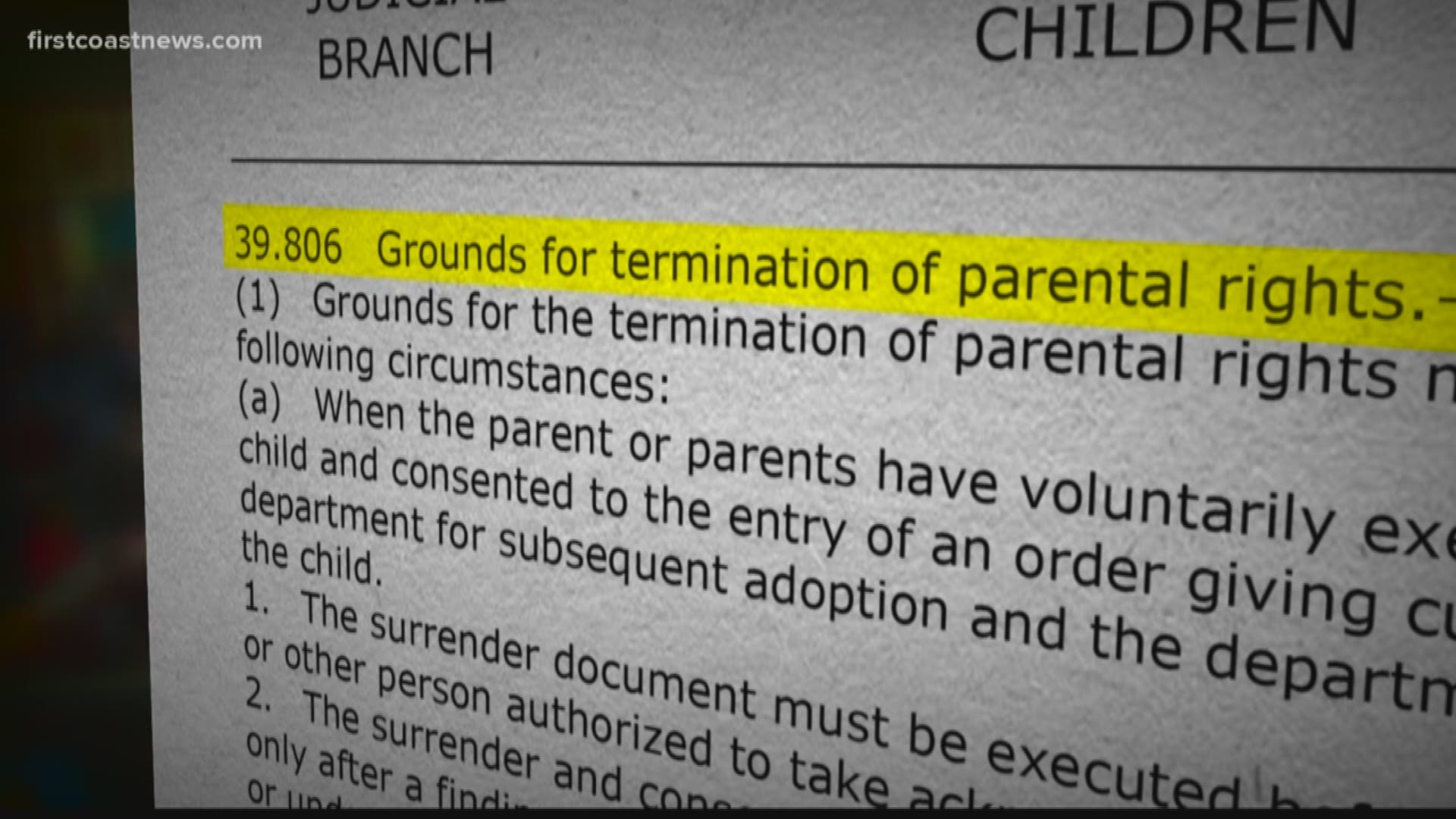A Jacksonville woman claims her access to motherhood has been blocked, not by financial or fertility issues, but legal ones.
Johnna Furman, 31, has given birth four times and all four were permanently removed by the state. She first became a mom at 17, unmarried and without family support, she admits she struggled.

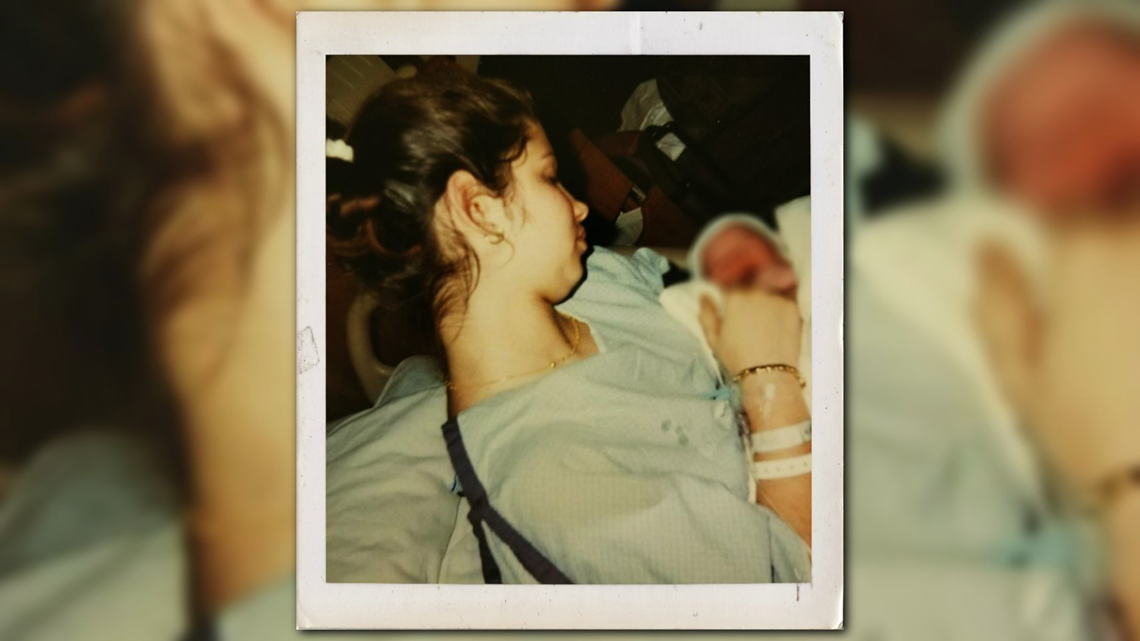
Three run-ins with the Department of Children and Family Services on allegations of abuse and neglect resulted in the removal of her first three children in 2012. Six years later she is asking the courts, how long she will be punished for her past.
In Florida, for some parents the timeline of punishment could be forever, said appellate attorney Nick Martino. Florida Statute 39.806(1)(f) changed the proof requirement for parents accused of egregious conduct.
In most cases, child removal in Florida must be signed off by a judge based on evidence of abuse or neglect. Abuse of one child in a household can result in removal of all siblings currently in the home at the time. The 2014 law, Martino said, allows child protective services to remove future children without any evidence of new abuse.
"It doesn't matter if it's two years later, ten years later, thirty years later," Martino said. "It's shocking. I read it and I said, that doesn't make sense to me...I can't believe there doesn't have to be any other check."
Furman was one of the first parents in the state to have a newborn removed from her care under the new statute. She learned about her fourth pregnancy two years after her three older children were removed. Determined to keep her baby girl out of the system, Furman said she considered arranging an adoption. Ultimately she moved to St. Augustine to work with child services before giving birth, hoping to persuade them she had turned her life around.

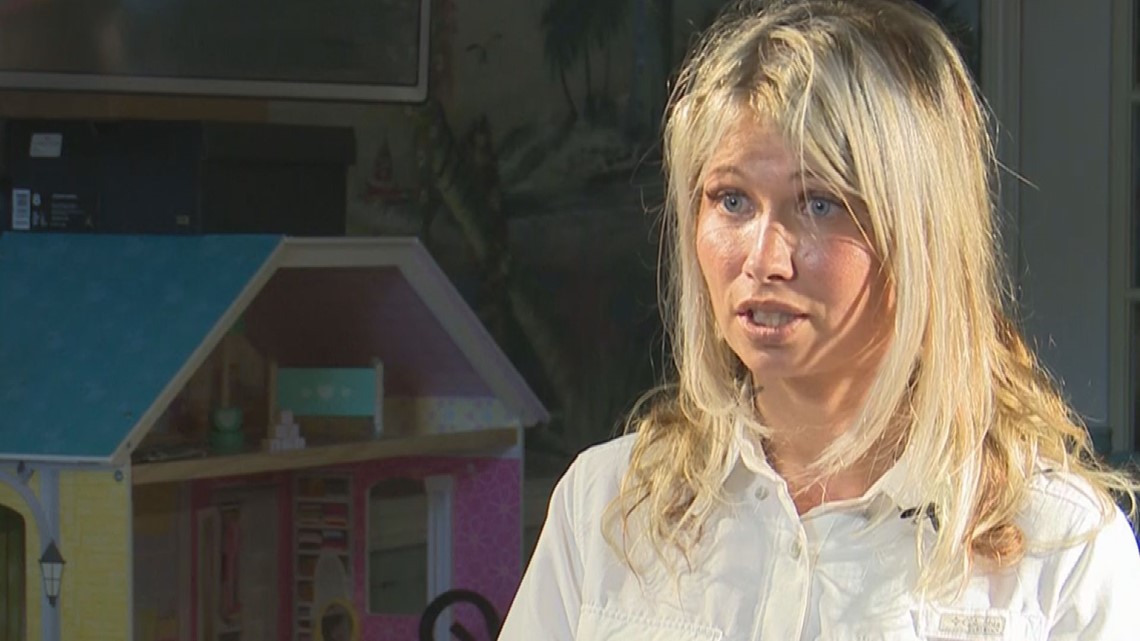
"I wanted to give her [my baby] a better life, I moved, started working, did a drug evaluation, parenting classes," Furman said. "St. Augustine [child services] said they believe in second chances and they were going to let her go home with me. They were excited and I was excited."
The excitement was short-lived. Furman said child services in Jacksonville learned about her new child.
"The day that we were supposed to leave the hospital [Jacksonville] calls and said don't let her leave with that baby, we want the baby. They added her to my old case," Furman recalled.
Under the new law that passed while she was pregnant, her new life changes did not matter.
DCF took her case before a judge asking to terminate her parental rights on the newborn. According to court documents provided by Furman, DCF had evidence of a marijuana arrest from 2007, reports of trace marijuana in her system in 2012 when she gave birth to her third child, and proof she left her children with a problem neighbor in 2010.
Most damaging was an allegation she abused her children in 2011, however, those charges were dropped months later and her children were returned to her care. Under Florida Statute 39.806(1)(f), the proof from the past was enough to terminate her parental rights all over again.
Furman said the court refused to hear her new evidence and her children were adopted by her ex's relative. One died as a baby from medical complications while in foster care. She has taken her frustration to social media in provocative videos and posts updating her followers on what she calls faults at every level in the system.

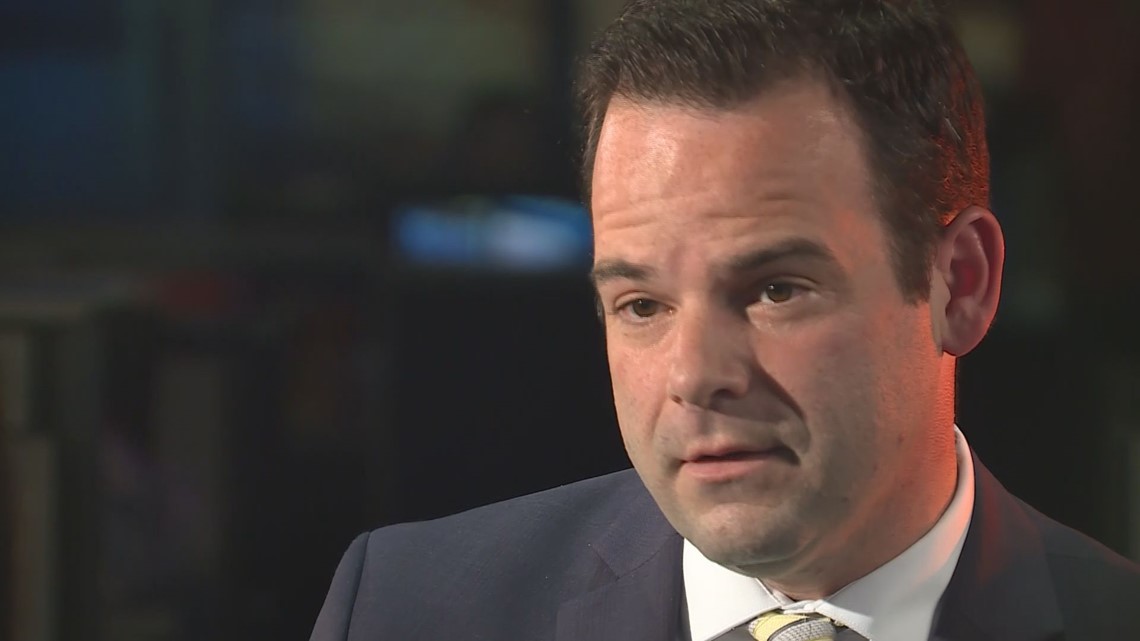
Attorney Martino said whether or not she is a perfect mom, the lack of checks and balances for the statute should concern all parents.
"Maybe she wouldn’t have decided to have a child, maybe she would have given the child up for adoption. There are options there that a parent should have," Martino said. "Maybe DCF should have monitored her for another year or two, I have no problem with that. You have a child there. But the answer was consistently and consistently…no."
Statute Background
Murderers lose parental rights under Florida law and no proof is required they harmed their children. The 2014 law used in Furman's case takes the same approach to parents who abuse, abandon or neglect a child.
"Proof of a nexus between egregious conduct to a child and the potential harm to the child’s sibling is not required." --Florida Statute 39.806(1)(f)
Senate bill documents show lawmakers proposed this change to better protect children from abuse and neglect. "The bill seeks to improve the quality of child abuse investigations conducted by DCF and certain sheriff’s offices," the committee analysis reads.
Department of Children and Family Services responds
DCF declined First Coast News' request for an interview. Spokesperson John Harrell provided the following statement:
Only a judge can make the final decision regarding the termination of parental rights. The Department of Children and Families’ first priority is the safety of children. If the department finds children are being abused or neglected during the course of an investigation, immediate actions are taken to ensure the safety of the children, including removal.

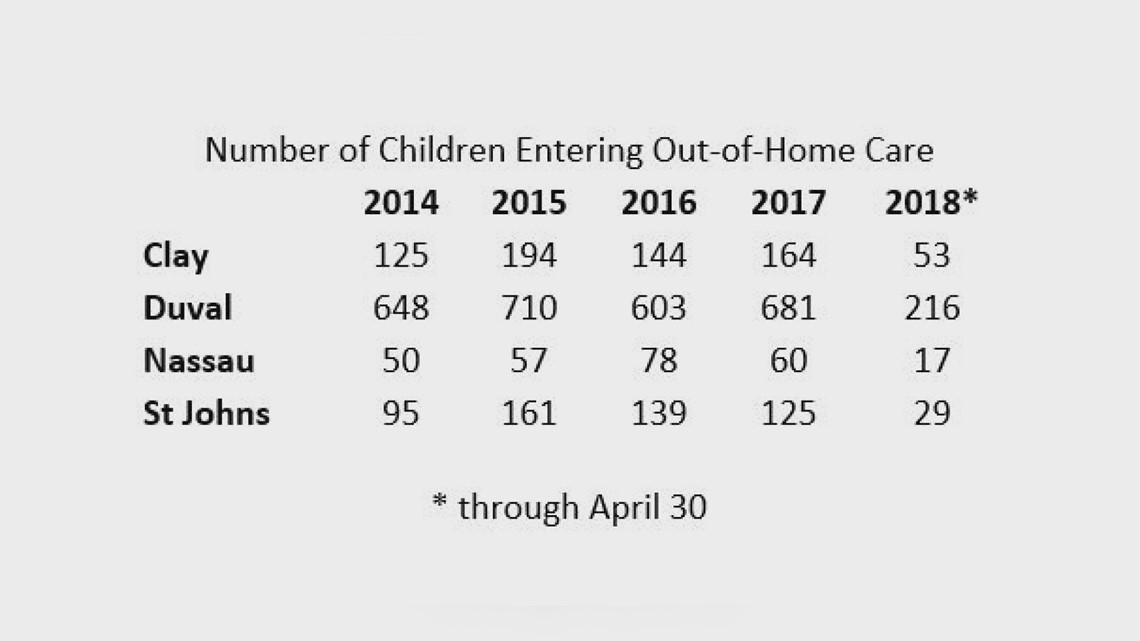
A total 315 children have been placed in out of home care in Duval, Nassau, St. Johns and Clay counties so far in 2018. DCF does not track removals that involve abuse to a sibling and not to any other children in the home.
'Death penalty of family court'
Furman's current legal battle has the potential to change the face of parental rights in Florida. Like many parents faced with losing the right to their children, she criticized DCF and her legal representation. Unlike most parents, however, she filed a motion for a new trial and effective assistance of counsel. A right to effective assistance of counsel only applied to criminal defendants facing prison sentences in 2012.
In 2015, the Florida Supreme Court expanded the right to those in danger of losing their parental rights.
"The Court’s point in that case was there’s no other greater of a situation where someone needs effective assistance, or at least comparable to someone who is facing life in prison," Martino said. "Some cases call termination of parental rights the death penalty of the family law field."
Martino has filed an appeal in Furman's case calling on judges to make the effective assistance of counsel right retroactive to her case. If successful, past parents could get another chance at parenthood. For Furman, the litigation is the last hope in getting back her three living children.
"I want to fight for my kids, I want to raise them. They’re mine," she said.

